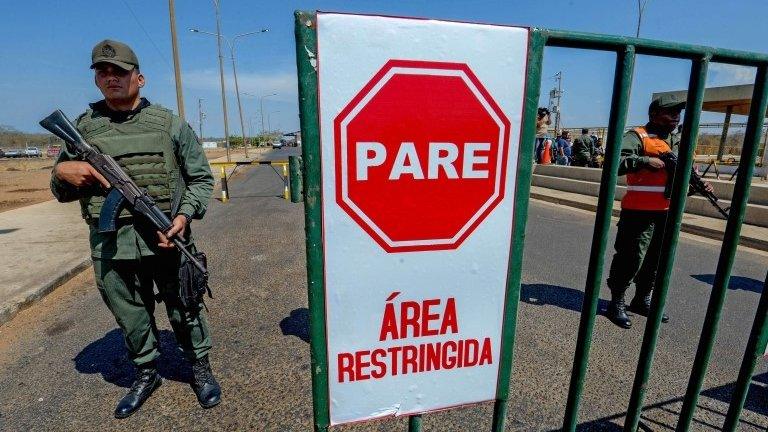Venezuela and Colombia to partially reopen border
- Published
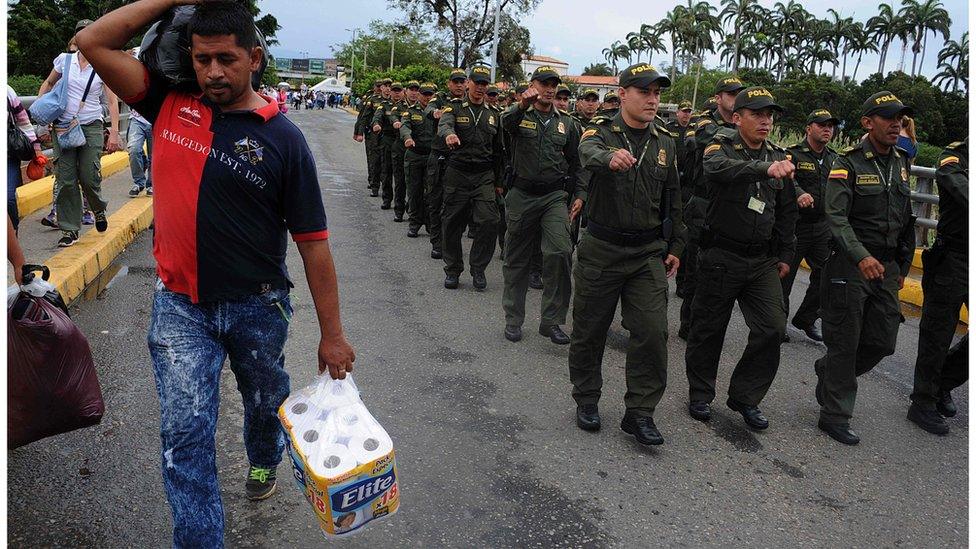
Last month, many Venezuelans entered Colombia to buy basic goods
Colombia and Venezuela have agreed to partially reopen their border, almost a year after it was closed.
Colombian President Juan Manuel Santos and his Venezuelan counterpart Nicolas Maduro announced that the frontier would be opened on Saturday.
During the first stage only pedestrians will be allowed to cross in five places along the 2,200km (1,370 miles) border.
Mr Maduro shut the border on security grounds. Many Colombians were expelled, and bilateral trade has since fallen.
The two presidents said that the five crossings would be open daily from 08:00 to 20:00 local time (13:00-01:00 GMT).
Growing discontent on the streets
Women push past border controls
President Maduro said improvements in bilateral relations and security had enabled Venezuela and Colombia to take a number of decisions, including the reopening of the border.
He said the measures would be "well received by our peoples", Telesur television network reports.
Meanwhile, President Santos was quoted as saying that "it will be a provisional opening as we learn and adjust our decisions every step of the way".
Colombia and Venezuela also agreed to work towards the full reopening of the border, saying they needed first to reach separate agreements on security, commerce and energy.
Mr Maduro ordered the border to be closed in August 2015 after former Colombian paramilitaries attacked a Venezuelan military patrol and wounded three soldiers.
In July, Venezuela twice opened the border to allow people to cross over to shop for basic foods and medicines. Nearly 200,000 people entered Colombia.
Many basic goods are in short supply in Venezuela because of a severe economic crisis in the country.
Venezuela has suffered severe shortages for months as a result of the falling price of oil which is the country's prime source of income.
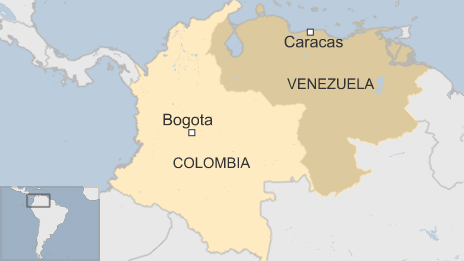
- Published6 July 2016
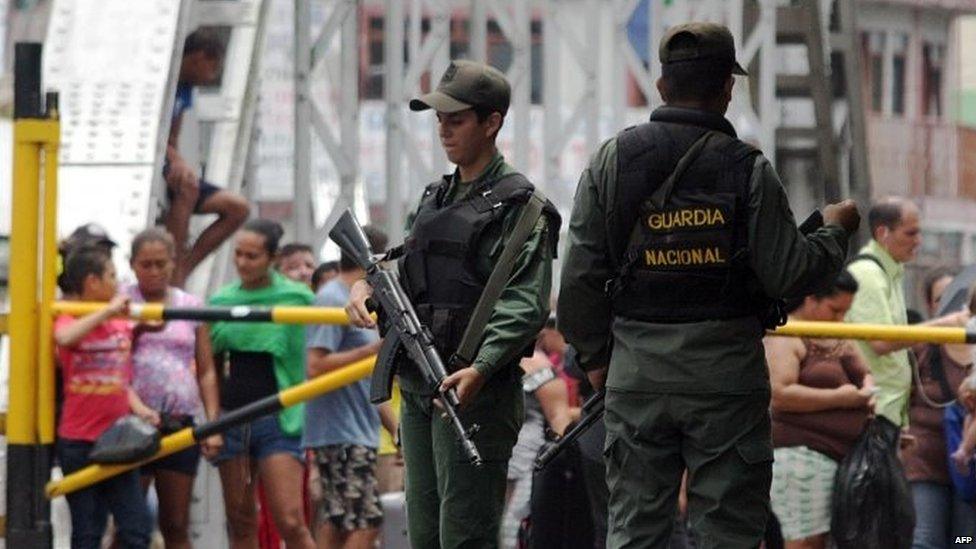
- Published4 July 2016
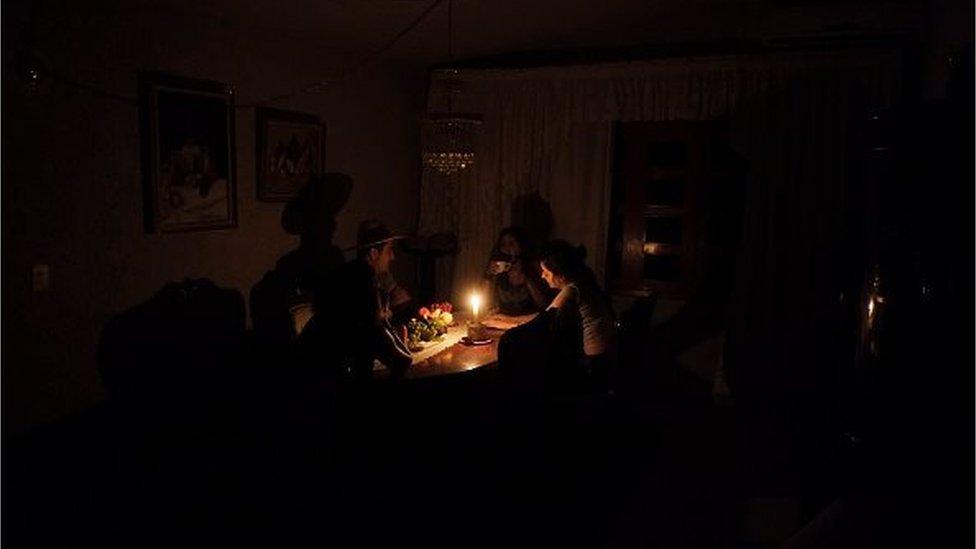
- Published16 September 2015
